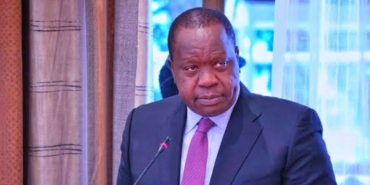Ruto Accuses Parliament and Judiciary of Blocking Kenya’s Anti-Corruption Efforts

President William Ruto has intensified his administration’s campaign against corruption, openly accusing Parliament and the Judiciary of obstructing progress.
Speaking at the opening of the Devolution Conference 2025, the President claimed that some parliamentary committees operate as “extortion rings,” and criticised the Judiciary for granting anticipatory bail to corruption suspects, which he said shields them from justice. In one of his most direct attacks on the two institutions, Ruto expressed frustration over the slow pace of the anti-corruption drive.
He alleged that certain Members of Parliament use oversight hearings to solicit bribes from government officials in exchange for favourable reports, undermining the very accountability they are meant to enforce. These accusations raise questions about the separation of powers and the possible abuse of legislative authority.
Turning to the Judiciary, Ruto condemned the frequent use of anticipatory bail, calling it a uniquely Kenyan practice that allows powerful individuals to evade prosecution. He urged the courts to prioritise the public interest and stop offering legal protection to those facing corruption charges.
Ruto’s remarks echo recent concerns from ODM leader Raila Odinga. The President further highlighted the recently enacted Conflict of Interest Act and reaffirmed his directive to the Ethics and Anti-Corruption Commission (EACC) that no one, regardless of status, is exempt from investigation or prosecution.
The President also pointed to digital governance measures, such as the e-Citizen platform, as effective tools in reducing petty bribery. By eliminating cash transactions and creating an audit trail, the system has reportedly improved revenue collection and transparency. Ruto urged county governments to adopt similar approaches to ensure that devolved funds are used responsibly.
EACC Director of Ethics and Leadership, John Lolkoloi, reinforced the President’s concerns, noting persistent bribery and unethical business practices in counties. European Union Ambassador Henriette Geiger also weighed in, warning that corruption remains a major barrier to development. She stressed the importance of regular county funding and pledged the EU’s continued support for stronger oversight systems.








Add new comment